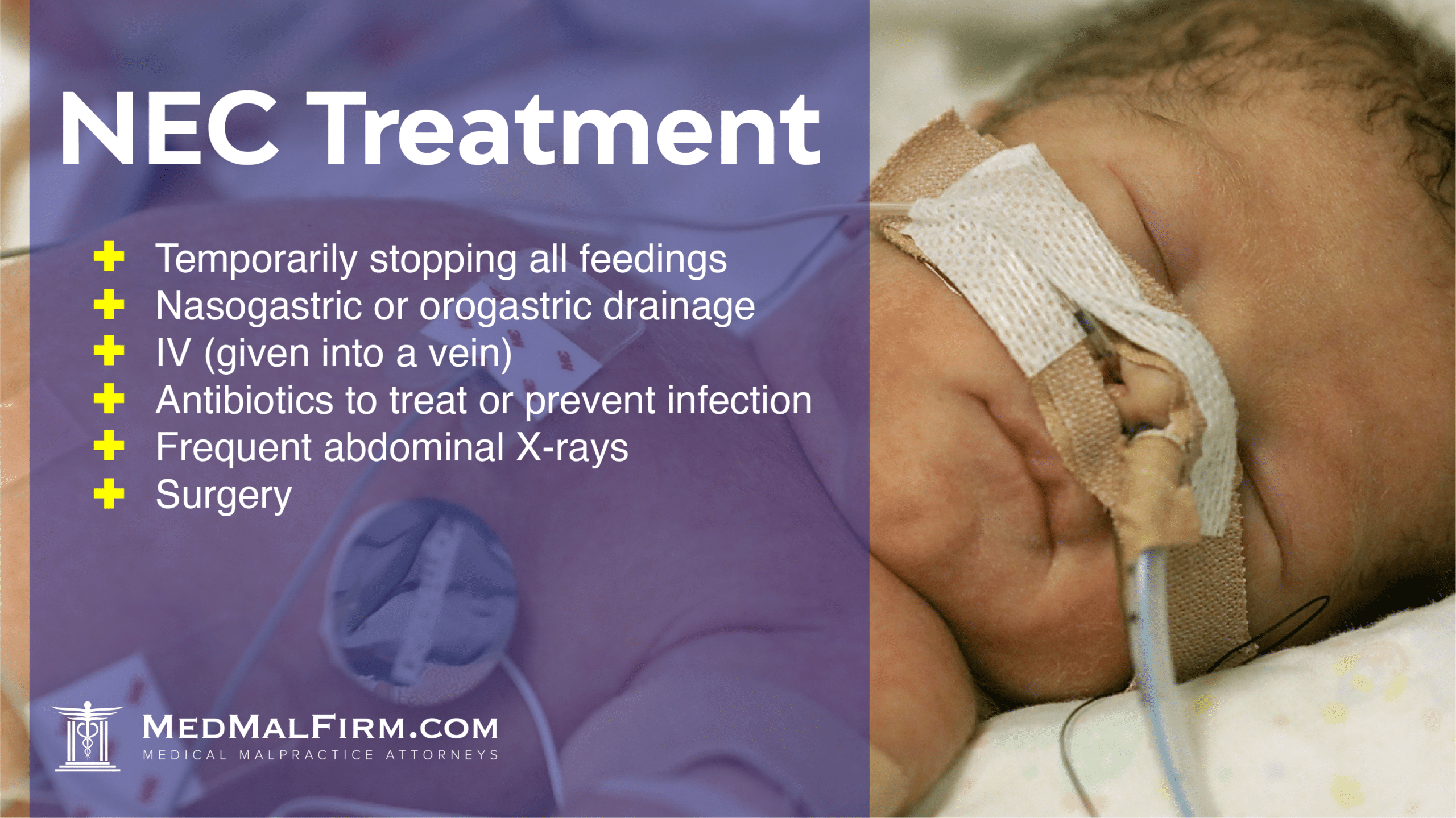
NEC Treatment
Yesterday, May 17th, was World NEC Awareness Day. To help spread awareness, MedMalFirm.com (formerly MedMalFirm.com) has been sharing information about NEC to help parents and healthcare providers understand the disease and risks. Today, we continue…
Yesterday, May 17th, was World NEC Awareness Day. To help spread awareness, MedMalFirm.com (formerly MedMalFirm.com) has been sharing information about NEC to help parents and healthcare providers understand the disease and risks. Today, we continue sharing valuable information by discussing NEC treatment options for infants.
Diagnosing and treating NEC is crucial to protecting the infant and preventing life-threatening complications.
NEC Treatment
NEC treatment may consist of medical or surgical intervention. If the intestine is intact, meaning no bowel perforation, then medical treatment may be sufficient. If there is a bowel perforation, however, then surgery may be necessary. Generally, 60-80% of infants with NEC do not need surgery.

Medically treating NEC includes a combination of the following, as applicable:
- Stopping all regular feedings.
- Feeding the infant nutrients intravenously (through an IV).
- Placing a nasogastric tube in the infant’s nose that runs into the stomach. This allows healthcare providers to suction air and fluids from the stomach and intestines.
- Initiating antibiotic therapy.
- Routinely checking stools (bowel movements) for blood.
- Routinely taking blood samples, which can detect signs of infection or imbalances.
- If abdominal swelling occurs and interferes with the infant’s breathing, oxygen or mechanical breathing assistance may be necessary.
- For severe cases, infants may require red blood cell or platelet transfusion.
If medical treatment doesn’t improve NEC, or the child doesn’t respond well to medical treatment, surgery may be necessary. The surgical process may include the following:
- An examination of the infant’s intestine
- Removal of dead tissue
- Repair of a bowel perforation
- If there is significant fluid in the abdomen, a drain may be placed
- In some cases, an ostomy is performed. This is an opening in the wall of the abdomen that allows the bowel to heal. The bowels will be reexamined within 48 hours to determine if the disease has progressed.
If treatment is started immediately after recognizing the symptoms of NEC, many infants recover without complications. Many infants are able to lead normal lives without long-term risks.
Complications of NEC
Complications of NEC can be life-threatening or fatal. The most common complications of NEC are:
- Peritonitis
- Sepsis
- Bowel perforation
- Intestinal stricture
- Liver problems (due to feeding difficulties)
- Short bowel syndrome
These complications can cause short- and long-term medical problems for the child. They can also be fatal if not diagnosed and treated immediately. An unfortunate reality is that around 50% of infants with NEC do not survive the disease. That is why appropriate NEC treatment is so important.
Research on Preventing NEC
Numerous studies and trials have sought to determine how best healthcare providers can prevent NEC. The consensus is clear – feeding premature infants a strictly human milk-based diet is the best way to prevent NEC. Premature newborns cannot properly digest the bovine protein in manufactured formulas. Therefore, they are at a substantially higher risk of developing bacteria, inflammation and infection, and consequently, NEC.
Researchers believe that prioritizing human milk is the best way to reduce NEC rates in hospitals. There are many studies and trials providing evidence that cow’s milk-based formulas increase the risk of NEC. This supports research that human milk is the best option for premature infants.
Sources:
